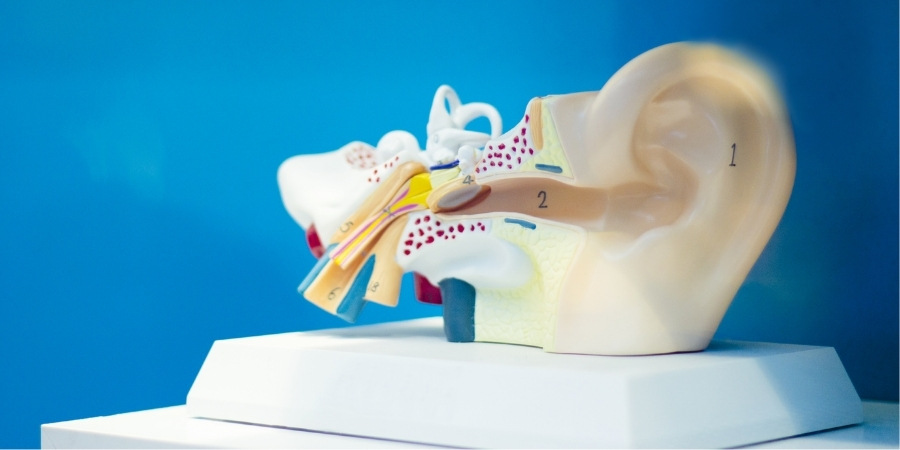Vestibular physiotherapy
Vestibular physiotherapy in Daisy Hill, North Lakes & Eight Mile Plains
Physiotherapy is a much broader discipline than many people realise. Yes, your physio has considerable expertise in musculoskeletal conditions, helping to strengthen your sprained ankle or ease your bad back. But physiotherapy can also improve a number of neurological conditions relating to your vestibular (balance) system.


What is the vestibular system?
Your vestibular system is one of your body’s little wonders. It’s run from your inner ear, just under your brain. Your vestibular system is a key part of your body’s balance mechanism, sending information about your head’s position to your brain, which integrates it with information received from your eyes, muscles and joints.
Inside your inner ear are three semicircular canals, lying at different angles to help judge your head’s position when you nod it, shake it, stand up or lie down. Moving your head causes fluid inside those canals to move, which in turn stimulates tiny hairs that send messages to your vestibular nerve and onto your brain.
If something goes wrong in your vestibular system, you may experience dizziness or difficulty keeping your balance.
What is vestibular physiotherapy?
Vestibular physiotherapy is a branch of physiotherapy dedicated to the identification and management of vestibular symptoms such as dizziness and vertigo.
Your physiotherapist will start with an in-depth assessment of your symptoms that may involve asking you to perform certain tests. Often your physio can then diagnose your condition and develop a treatment plan. Sometimes, your physio will refer you to a neurologist for further investigations which may include a hearing test, a brain (MRI) scan, blood tests and more balance function tests.
Vestibular physiotherapy involves exercises designed to:
- Make you feel slightly dizzy to help your vestibular system get used to the feeling and accept it (habituation exercises)
- Improve your eye-head coordination
- Challenge and strengthen your vestibular balance system when you’re walking.
Your vestibular physiotherapist may also use certain techniques such as the Epley manouvre to reduce symptoms of vertigo.
Who can benefit from vestibular physiotherapy?
You may benefit from vestibular physiotherapy if you regularly have unexplained episodes of dizziness, feel like the room is spinning, or lose your balance.
Ongoing dizziness can have a significant impact on your life. It may mean you’re unable to drive and have to cut back on activities you enjoy. It can also impact your ability to do your job, especially if noisy environments or computer screens act as a trigger.
Getting help from a vestibular physiotherapist may improve your symptoms and quality of life.
What conditions can vestibular physiotherapy treat?
Vestibular physiotherapy is used to treat several conditions including:
Benign paroxysmal positional vertigo (BPPV): When small calcium crystals in your inner ear dislodge and start moving in the wrong part of your vestibular canal, it distorts the balance signals sent to your brain, creating a sudden, intense feeling that the room is spinning.
The moment passes quickly but the vertigo returns with other head movements such as rolling over in bed or standing up. Physiotherapy treatments such as the Epley manoeuvre can help to reposition the loose crystals back to their correct place.
Meniere’s disease: A fluid imbalance causes a feeling of fullness in your eardrum, accompanied by dizziness, hearing loss and general unsteadiness. Various techniques can be used to improve fluid movement and manage hearing.
Viral infections: Inflammation or infection along the vestibular nerve or within the inner ear may cause nausea, vomiting and poor balance. Common infections include vestibular neuritis and labyrinthitis. Exercises focus on sensory integration, coordination, core control and functional strength.
Vestibular migraines: These can occur with or without an accompanying headache and involve episodes of intense dizziness and vertigo that may last minutes or wipe out the whole day. Physiotherapy may help by improving mobilisation and posture.
Hearing-related dizziness: Tinnitus (ringing in your ears) and some types of age-related hearing loss may cause dizziness. Working together, your audiologist will advise on ways to improve your hearing while your physiotherapist can help to improve your balance.
Vestibular physiotherapy at The Brisbane Spine Clinic
Dizziness is a sign that your brain is receiving mixed messages about your body’s position. It’s a hard condition to live with, especially if you don’t yet understand what’s causing it.
The Brisbane Spine Clinic’s capable vestibular physiotherapists will assess you carefully to determine the cause of your symptoms, then recommend the appropriate treatments to ease your symptoms and improve your quality of life.
Why choose our clinic
From the moment you book in for your consultation till the completion of your spinal treatments, you will realise The Brisbane Spine Clinic difference.
- Peace of mind
- Trust
- Clear communication
- Dedication and commitment
- Highest level of care
- Problem-solving approach
- Second opinions
- Non-invasive treatment
Request an appointment
More services
Our Physiotherapists
Yu-Tsung (Justin) Lin
Co-Founder and Senior Musculoskeletal Consultant
Sang Bin (Leo) Hyun
Senior Spinal Consultant
Chun Man (Kelvin) Choi
Physiotherapist and Accredited Exercise Physiologist
Marco Lin
Physiotherapist & Clinical Exercise Physiologist
Raymond Sidhu
Physiotherapist
Yuji Chen
Physiotherapist
Matthew Choi
Physiotherapist
Michael Pham
Physiotherapist
Disclaimer
All information is general in nature. Patients should consider their own personal circumstances and seek a second opinion








